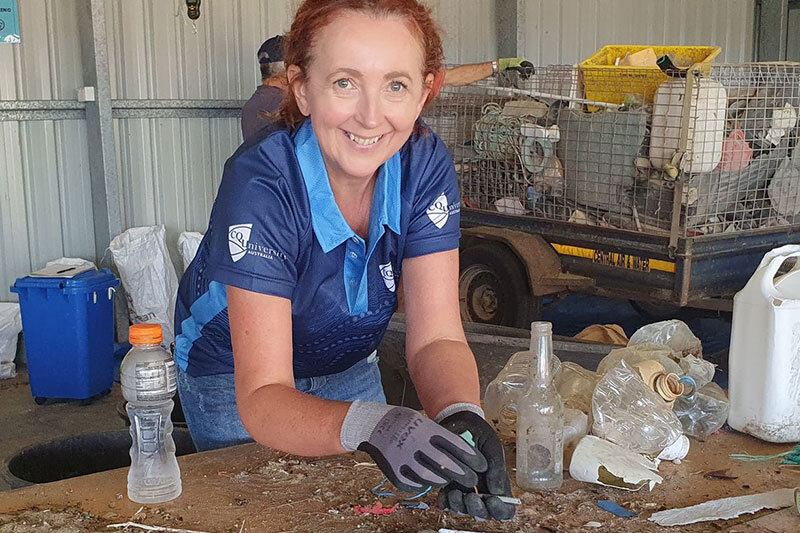All roads flow to the sea capturing road-based plastic pollution
Description
Mismanaged plastic waste, predominantly from land-based sources, accumulates in the marine environment causing harm to many species. Roads are a conduit for plastic waste (particularly smaller microplastics <5mm) to enter aquatic environments from several different processes: (1) road use and maintenance; (2) tyre-derived crumb added to asphalt mixes during road resurfacing to promote durability and in other infrastructures such as parking bumpers and soft-fall coverings. Very little is known of the shedding capabilities of road paint, artificial grass and tyre-crumb-based infrastructure from the installation process to wear and tear.

Impact
Successful interventions already capture, identify and audit road-based litter including larger plastic debris using stormwater drain traps, e.g. ‘Drain Buddies' in Queensland. In trials we have modified Drain Buddies to capture finer-scale road-based microplastics; but we are missing knowledge on the ‘when', ‘where' and for ‘how long' to target a reduction in road-associated pollution; and a system for initiating the intervention. Other plastic waste studies have used community-based nudge interventions to dramatically reduce waste, but typically at individual levels (e.g. using bins, not littering). We will use the same community nudge concept to reduce waste at the corporate level through liaison with councils and road industry sectors to encourage less wasteful behaviour via the easiest, most accessible option without adding extra burden to the process. This project will be carried out at sites in Rockhampton and Yeppoon over a two year period.
Partners
- Clean Water Group
- Rockhampton Regional Council
- Livingstone Shire Council
- Dr Amanda Rebar
- Dr Amie Anastasi
This project has received funding support from the Queensland Government's Community Sustainability Action grant program.
Dr Angela Capper - Project Lead
Dr Angela Capper has 20 years' experience in marine ecotoxicology, with strong interests in pollutants and contaminants and their fate in the environment, biological matrices and risks to human health.

Sustainable Development Goals
At CQUniversity we are committed to embedding sustainable practice in our operations, interactions and relationships, underpinned by the United Nations Sustainable Development Goals. Sustainability sits as one of our strategic pillars within our Strategic Plan 2019-2023.
This project aligns to the following SDG Goals:
- 11 – Sustainable cities and communities
- 11.6 – Reduce the environmental impact of cities
- 12 – Responsible consumption and production
- 12.4 – Responsible management of chemicals and waste
- 12.5 – Substantially reduce waste generation
- 14 – Life below water
- 14.1 – Reduce marine pollution
- 14.2 – Protect and restore ecosystems


